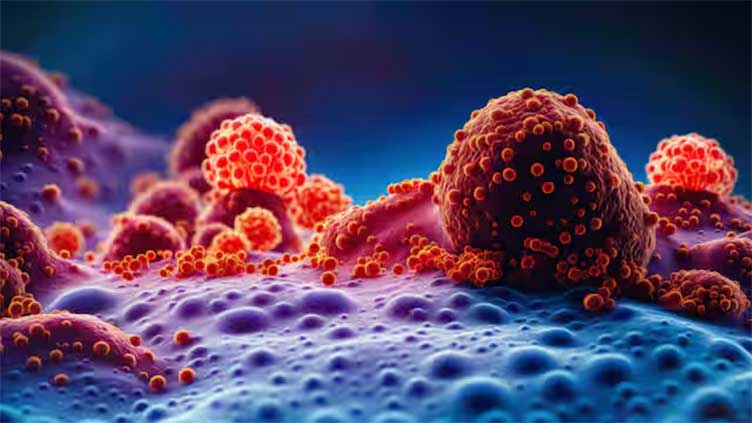Scientists find why pancreatic cancer spreads at alarming speed

Discovery may hold key to cure
(Web Desk) - Researchers from the UK and the United States have uncovered crucial insights into how pancreatic cancer spreads in the human body.
Their work has paved the way for potential new treatments for one of the world's deadliest diseases.
The team discovered that pancreatic cancer can deactivate molecules in a critical gene due to which the disease spreads at an alarming speed.
The development is being deemed as a game-changer in the battle against pancreatic cancer.
It ranks as the 12th most common cancer globally, with over half a million new cases each year. The disease is notorious for its poor prognosis, with most patients succumbing within three months of diagnosis.
High-profile victims include Alan Rickman, John Hurt, Steve Jobs, and Patrick Swayze.
Dr Maria Hatziapostolou from Nottingham Trent University's John van Geest Cancer Research Centre told the Guardian: "This work has provided new understanding and knowledge of how pancreatic cancer behaves.
It will hopefully help pave the way for potential new treatments in the future."
The study, published in the journal Gastro Hep Advances, involved the analysis of both healthy and cancerous pancreatic tissue samples.
Researchers identified that pancreatic cancer triggers DNA methylation, a process that switches off molecules in the HNF4A gene. This gene is essential for the proper functioning of many organs, but pancreatic cancer can deactivate its benefits, leading to rapid tumor growth.
"Loss of HNF4A drives pancreatic cancer development and aggressiveness and we now know correlates with poor patient survival," Dr Hatziapostolou added.
The project included scientists from the University of Nottingham, Stanford University, the University of California, and Cedars-Sinai Medical Centre in Los Angeles.


